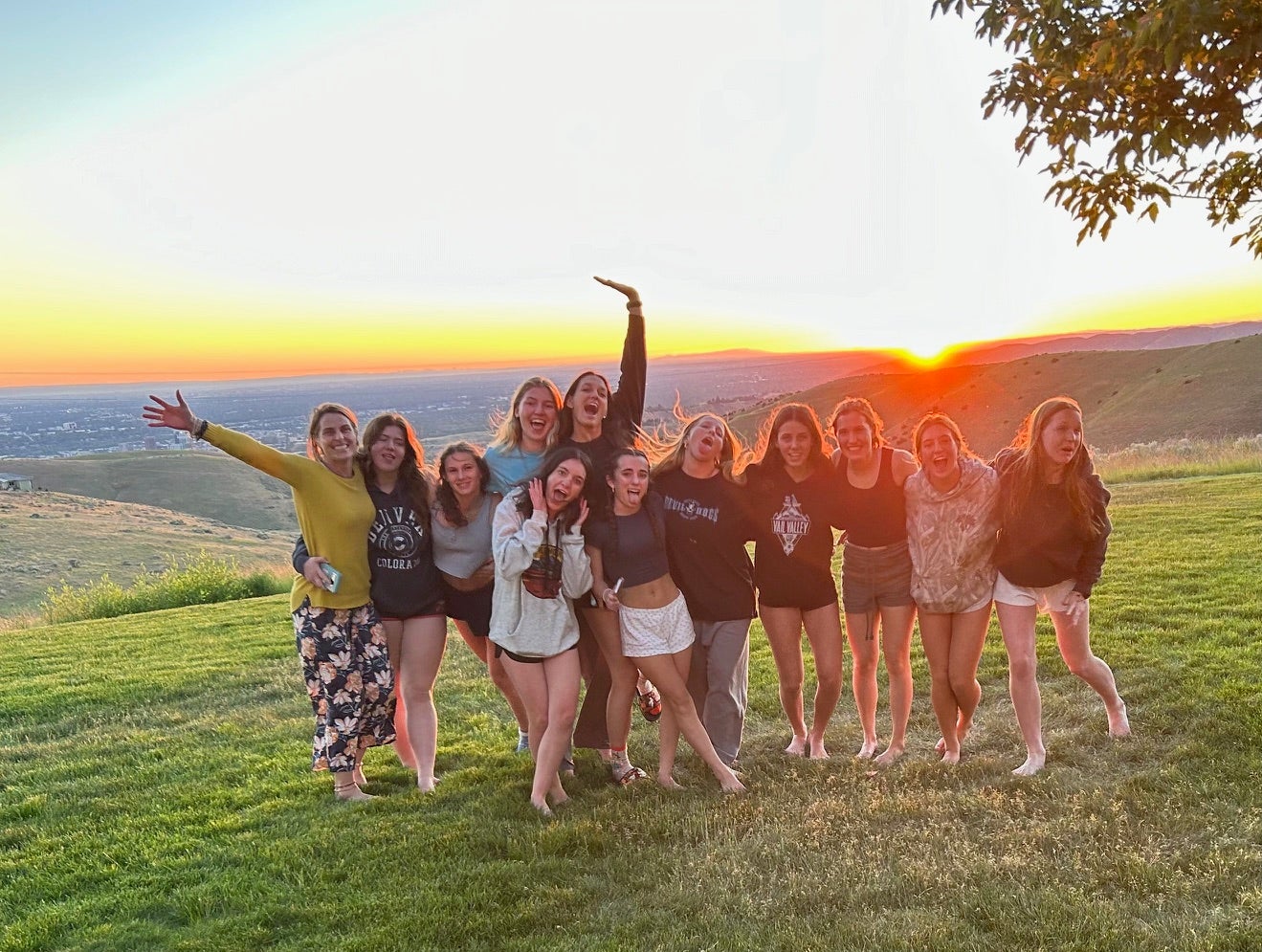
In the summer of 2024, students and faculty in the School of Kinesiology worked with young female alpine skiers, ages 15-19 years old, from the Sun Valley Ski Education Foundation to assist them in developing themselves as athletes, as well as young women. Anika Angriman, a Boise State kinesiology graduate student and ski coach for the athletes, worked with fellow kinesiology graduate student Iona Halliday to organize and lead the camp.
Lynda Ransdell, chair of the School of Kinesiology, notes that a camp like this is innovative and exciting, as very few camps like this have been offered to elite young female athletes. In addition, there is little baseline data for young female athletes, who might benefit from knowing more about how they can reach the elite level.
The School of Kinesiology ran tests utilizing its Human Performance Lab to collect data related to maximal oxygen consumption. The Center for Orthopaedics and Biomechanics Research was used to assess athlete’s lower body muscular strength, power and fatigue necessary for alpine skiing through the use of force plate data and video analysis.
These tests were recommended by U.S. skiing, as well as research literature that identified specific performance tests that highly correlated with the fitness and aptitude required for alpine skiing performance. The results will help the athletes understand themselves, as well as the impact that targeted sport-specific training can have on their bodies. Numerous studies have been designed to build better male athletes but not as many for women.
Holistic approach to improving athletic performance
In addition to collecting data and providing the athletes with technique and performance feedback, the camp also provided focused education sessions on elements such as nutrition, strength and conditioning, sport psychology and visualization practices. While the camp was designed to primarily provide athletes and coaches with data, education and feedback, it also facilitated a team building opportunity for team members and their coach.
“Age differences have not been a problem,” Halliday said. “I’m a bit ‘anti-grouping based on age.’ Everyone grows and develops at different rates. Treat athletes at that age based on what they’re capable of. It doesn’t matter what age they are, examine their maturity and training age.”
“It’s not just how strong or fast you are,” Angriman said. “It’s also about sleep, recovery and other aspects of sports psychology.”
Halliday discussed the importance of this camp and its emphasis on the young female athletes of today. She states “the dialogue has changed” and she is excited to educate the youth instead of “clumping them into one category.”
Boise State students eager to serve
Halliday came to Boise State from a post-graduate position as a physiologist at the Australian Institute of Sports, where she honed her skills for developing athletes. Before that, she was a research assistant at Macquarie University for a variety of human performance projects within sports, military and emergency services. She is now working with Tyler Brown, associate professor in kinesiology, examining the biomechanical determinants of leg stress fractures. Halliday is passionate about the importance of educating young females who participate in sports and she focused on subjects like developing sport-specific skills and fitness for skiing.
Angriman hails from Italy, where she was on the Italian national ski team. She came to the U.S. in 2017 to race as an NCAA Division I athlete in Salt Lake City, Utah. She began coaching after her undergraduate studies. Now, she is pursuing her masters in the kinesiology program at Boise State. Similar to Halliday, she wanted to emphasize the importance of studying the science of ski performance, specific to female athletes.
It is the department’s hope that similar camps can be held in the future.
Learn and watch more on KIVI’s website.